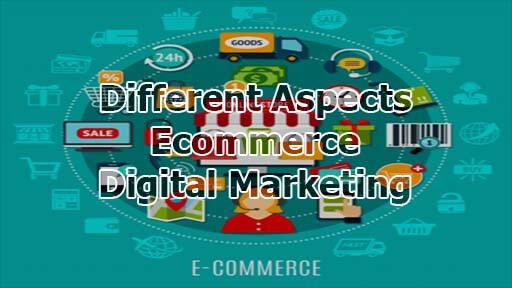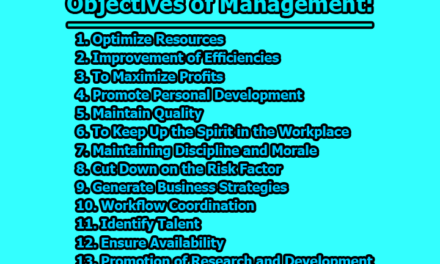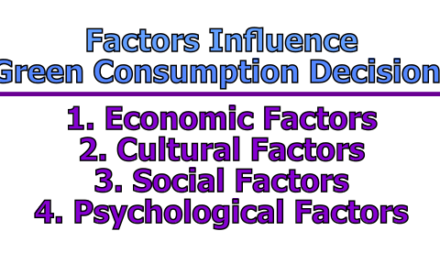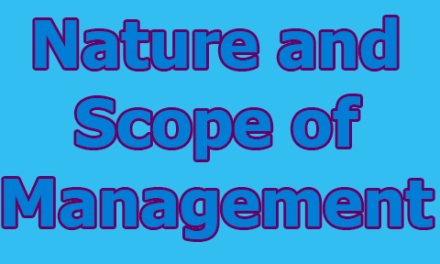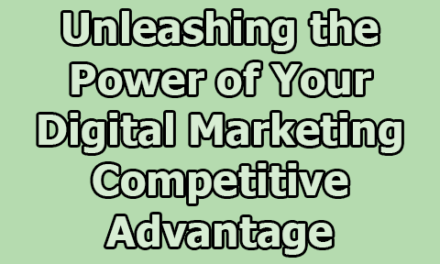Different Aspects of E-commerce Digital Marketing:
E-commerce digital marketing refers to the use of various digital marketing tactics to promote and sell products or services through an online store. With the rise of e-commerce, digital marketing has become an essential part of any e-commerce strategy. In this article, we will discuss the different aspects of e-commerce digital marketing and how they can be used to boost sales and revenue.
- Search engine optimization (SEO): Search engine optimization (SEO) is the process of optimizing a website to rank higher in search engine results pages (SERPs) for relevant keywords. It is one of the most important components of e-commerce digital marketing. SEO helps to drive more organic traffic to your e-commerce website and improve its visibility in search engines.
To optimize your e-commerce website for search engines, you should focus on the following:
- Keyword research: Identify the keywords that your target audience is searching for and use them in your website content and product descriptions.
- On-page optimization: Optimize your website’s meta tags, headers, images, and content to make it more search engine friendly.
- Site speed: Make sure your website loads quickly to improve user experience and reduce bounce rates.
- Mobile optimization: Ensure your website is optimized for mobile devices, as more and more people are using their smartphones and tablets to shop online.
- Backlinks: Build high-quality backlinks to your website to improve its authority and credibility.
- Pay-per-click advertising (PPC): Pay-per-click advertising (PPC) is a form of digital advertising where advertisers pay each time a user clicks on their ad. PPC advertising is a great way to drive targeted traffic to your e-commerce website and increase sales. There are several platforms where you can run PPC ads, including Google Ads, Bing Ads, and Facebook Ads.
To run a successful PPC campaign for your e-commerce website, you should focus on the following:
- Keyword research: Identify the keywords that are relevant to your products or services and create ad campaigns around them.
- Ad copy: Write compelling ad copy that entices users to click on your ads.
- Landing pages: Create landing pages that are optimized for conversions and lead users to take a specific action, such as making a purchase or filling out a form.
- Ad targeting: Use targeting options such as location, age, gender, and interests to reach your ideal audience.
- Bid management: Manage your bids to ensure that you are getting the most value from your advertising budget.
- Email marketing: Email marketing is one of the most effective e-commerce digital marketing tactics for driving sales and building customer loyalty. With email marketing, you can communicate directly with your customers and keep them informed about new products, promotions, and other updates.
To run a successful email marketing campaign for your e-commerce website, you should focus on the following:
- Build your email list: Use various tactics such as pop-ups, lead magnets, and social media to build your email list.
- Segment your email list: Segment your email list based on various criteria such as purchase history, interests, and demographics to personalize your email content and improve engagement.
- Create engaging email content: Write compelling email content that provides value to your subscribers and encourages them to take action.
- Use automation: Use email automation to send targeted messages based on user behavior, such as abandoned cart reminders and welcome emails.
- Track your results: Use email analytics to track your open rates, click-through rates, and other metrics to optimize your campaigns over time.
- Social media marketing: Social media marketing is a great way to reach a wider audience and build brand awareness for your e-commerce website. Social media platforms such as Facebook, Instagram, and Twitter allow you to target users based on their interests, demographics, and behavior.
To run a successful social media marketing campaign for your e-commerce website, you should focus on the following:
- Choose the right platform: Identify the social media platforms that are most relevant to your target audience and focus your efforts there. For example, if your target audience is primarily young adults, you may want to focus your efforts on Instagram and TikTok.
- Create engaging content: Use a mix of photos, videos, and graphics to create engaging content that resonates with your audience. You can also use user-generated content to showcase your products in a more authentic way.
- Use influencer marketing: Partner with influencers in your niche to reach a wider audience and build credibility for your brand.
- Run social media ads: Use social media ads to reach a targeted audience and drive traffic to your e-commerce website.
- Engage with your followers: Respond to comments and messages in a timely manner to build a relationship with your followers and improve engagement.
- Content marketing: Content marketing is the process of creating and sharing valuable content that attracts and engages your target audience. Content marketing can help to build brand awareness, establish your expertise, and drive traffic to your e-commerce website.
To run a successful content marketing campaign for your e-commerce website, you should focus on the following:
- Identify your target audience: Identify the interests and pain points of your target audience and create content that addresses those needs.
- Create high-quality content: Use a mix of blog posts, videos, infographics, and other formats to create high-quality content that is valuable to your audience.
- Promote your content: Use social media, email marketing, and other channels to promote your content and reach a wider audience.
- Optimize for search engines: Use keyword research and on-page optimization techniques to improve the search engine visibility of your content.
- Measure your results: Use analytics tools to track your content marketing results and optimize your campaigns over time.
It is apparent that e-commerce digital marketing is essential for any online store looking to drive sales and revenue. By using a combination of SEO, PPC advertising, email marketing, social media marketing, and content marketing, you can reach a wider audience, build brand awareness, and establish your expertise in your niche. With the right e-commerce digital marketing strategy, you can drive more traffic and sales to your online store and grow your business over time.
References:
- Chaffey, D., & Smith, P. R. (2017). Digital marketing excellence: planning, optimizing, and integrating online marketing. Routledge.
- Ellis-Chadwick, F., & Doherty, N. F. (2012). Web advertising: The role of e-mail marketing. Journal of Business Research, 65(6), 843-848.
- Han, J. K., Kim, N., & Srivastava, R. K. (1998). Market orientation and organizational performance: is innovation a missing link?. Journal of Marketing, 62(4), 30-45.
- Hoffmann, S. (2014). Advertisers’ strategies for the selection of digital marketing channels: Insights from a content analysis of industry expert interviews. Journal of Interactive Advertising, 14(2), 130-141.
- Strauss, J., & Frost, R. (2016). E-marketing (7th ed.). Routledge.
- Tuten, T. L., & Solomon, M. R. (2017). Social media marketing. Sage publications.
- Wang, Y., & Sun, S. (2010). A study of digital marketing strategy combining social media for SMEs. Procedia Engineering, 2(1), 3327-3331.

Library Lecturer at Nurul Amin Degree College

